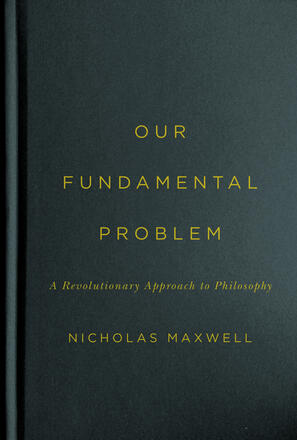
Our Fundamental Problem
A Revolutionary Approach to Philosophy
How our human world can exist and best flourish even though it is embedded in the physical universe.
Description
How can the world we live in and see, touch, hear, and smell, the world of living things, people, consciousness, free will, meaning, and value - how can all of this exist and flourish embedded as it is in the physical universe, made up of nothing but physical entities such as electrons and quarks? How can anything be of value if everything in the universe is, ultimately, just physics? In Our Fundamental Problem Nicholas Maxwell argues that this problem of reconciling the human and physical worlds needs to take centre stage in our thinking, so that our best ideas about it interact with our attempts to solve even more important specialized problems of thought and life. When we explore this fundamental problem, Maxwell argues, revolutionary answers emerge for a wide range of questions arising in philosophy, science, social inquiry, academic inquiry as a whole, and - most important of all - our capacity to solve the global problems that threaten our future: climate change, habitat destruction, extinction of species, inequality, war, pollution of earth, sea, and air. An unorthodox introduction to philosophy, Our Fundamental Problem brings philosophy down to earth and demonstrates its vital importance for science, scholarship, education, life, and the fate of the world.
Reviews
"The problems and challenges raised by Our Fundamental Problem are undoubtedly relevant, making this book a highly important contribution for anyone interested in addressing and answering the most important problems of our time in a meaningful way." Gil Santos, Metascience
"This book deserves to be studied by anyone seriously interested in making the world a better place." Brian Ellis, La Trobe University